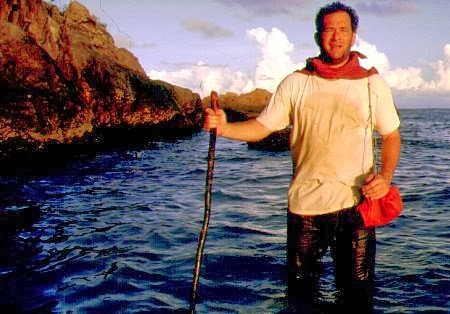Today I’m quitting
Facebook for two months – until the end of February 2014. Here’s why:
Virtual vs actual
connections
I’ve used the Facebook
to replace connecting with my actual social network. Over the past few years
I’ve commented on a post rather than calling or emailing or writing a letter. I
can go months without calling or contacting any of my friends who are on
Facebook, as I can see what’s happening for them through their updates. I’ve
allowed a decrease in the amount of contact I have with those who are not on
Facebook – unconsciously putting the contact into the ‘later’ basket. This,
with friends who I have known for a decade or more. with whom I have travelled
continents, mourned broken relationships and celebrated new unions and new
lives. I have enabled a computer and a virtual network do this. Lately, this
superficial level of contact has been making me feel unfulfilled.
A possible downfall
This means inevitably
that my virtual social network will decrease. It’s just not possible to
maintain contact with all 244 people with whom I am Facebook friends via older
methods of communication like phone calls, letters or actual face to face
contact. Facebook’s algorithms, and the digital social networks of which I am a
part, require me to contribute in order to be a meaningful member of the
community.
This move could even
affect my brain. There’s a hypothesis that the size of a social network has a
direct correlation with the neuroplasticity of individuals in that network.
This article summarises a study that was based on monkeys and the theory applied to Facebook
and other social networks.
However, I’m not a
monkey and there are other ways to promote neuroplasticity – some of which I
would like to explore. Quitting Facebook will free up my brain space to allow
it to work in different ways.
Protecting memories
I’m a Gen X. My early
relationships with friends and family unfolded across pages of letters
handwritten and posted across the country. I read them now and I’m reminded of
the person I was then and that I am now. Facebook moves very quickly and there’s
no solution yet as to how to preserve the feeds as historical documents for
individuals. Facebook posts also lack the depth that a letter can convey.
Procrastination
In the past few
months I have procrastinated by trawling Facebook. This video helped me understand why I’ve been doing this. Humans, when faced with a new
and daunting task will procrastinate by completing small, insignificant tasks
because they are gratified by completing these and ticking them off their
mental to do lists.
In the past few
months I’ve had new challenges about which I have been daunted and overwhelmed.
I have struggled to develop a clear vision of the end goal and so have gone for
the easy way out. Rather than waking each day and considering what lies before
me, and visualising how I will approach it so I get what will most make me
happy, I have instead rolled over, picked up my phone from my bedside table and
checked Facebook to see what the news for the day is. The result of this is
that some projects, which could actually make a positive impact on my life,
have not progressed in the ways that would make me happy.
More reasons to quit
There are many other
reasons to quit Facebook. This Huffington Post article refers to study from the University of Vienna who studied
320 individuals who quit Facebook for several weeks or more. Their primary
drivers were:
‘worried
about who sees their photos, annoyed by Facebook’s constant changes, irritated
by superficial social interactions and concerned by how many hours (approx 1.9
hours per day) they spend glassy-eyed and slack-jawed staring at their screens.’
Not replacing it with other networks
So what will replace
the 1.9 hours of my day that I won’t be on Facebook? One thing I won’t be doing
is engaging in other social networks like Twitter or Instagram as suggested by
this article in Huffington Post entitled 11 Reasons You Should Quit Facebook In 2014. Online communication has become more
visual and our networks want photos of what is happening for us. I recently
went a bit far when I sent my team at work a graphic photo of my left eye which
had puffed closed and nessecitated a trip to the hospital and a day of leave
from work. My team said I had set a precedent for requiring photo evidence of
sickness – a suggestion which is unlikely to materialise. However, the ease of
taking and sharing photos has meant that communication via images has become
more accepted and understood. But this has also meant a decline in our privacy,
as every digital image shared has a permanent imprint on the network. Plus, I
am a writer. Why would I use a photo to replace what I can illustrate with
words?
Why quit for only two months?
As a marketer I love
social networks. I’ve been lucky enough to live through times when the internet
just didn’t exist, to today when it’s part of every day life. I love observing digital
communities, being part of them and am grateful every day for the new
information and ideas that I see through the friend and pages that I have
liked. I joked years ago that I would only ever tweet if someone paid me, but
the truth is that my digital inclinations are also part of my offering as a
marketer.
Quitting Facebook for
two months is a temporary move. A chance to reconnect with people in different
ways. I can still be reached via gmail, Linkedin, this blog, phone and even
snail mail.






